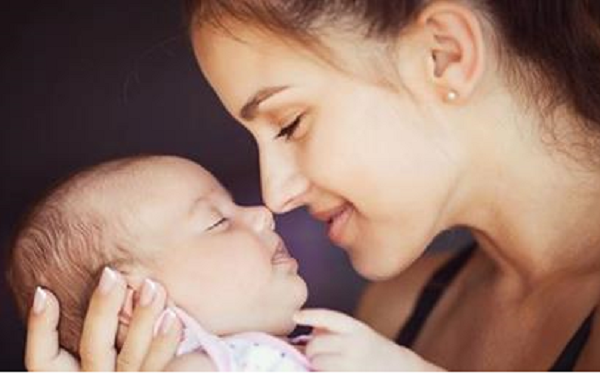Pro-life Texans have been increasing efforts to support mothers in need in preparation for the day when abortions finally are banned again.
Now, that day is here, and they are ready to help.
The Texas heartbeat law went into effect Wednesday, banning abortions once an unborn baby’s heartbeat is detectable, about six weeks of pregnancy. If the courts do not block it, the law potentially could save tens of thousands of unborn babies from abortion every year.
Meanwhile, pro-life leaders are sending a message to mothers that they do not need to walk their pregnancy journey alone.
“While today we are hopeful for the thousands of babies whose lives will be saved, we are also hopeful for their mothers,” said Chelsey Youman, legislative director for Human Coalition. “Texas has spent decades creating a vast support system for pregnant women for this very day.”
Keep up with the latest pro-life news and information on Twitter. Follow @LifeNewsHQ
Youman said Human Coalition, which runs a network of pro-life clinics across the U.S., knows a lot of work is ahead, and they are prepared to help women access health care, emotional support, resources and assistance to create a safe, stable environment for themselves and their families.
“There are over 2,700 non-profits, like Human Coalition, committed to walking alongside pregnant women to provide permanent solutions such as the resources and assistance they need to lead healthy, stable lives with their children,” she said.
Support for mothers and babies is coming from Texas pro-life lawmakers, too.
In the spring, around the same time when they passed the heartbeat law, state lawmakers also budgeted $100 million specifically to help pregnant and parenting mothers and babies. The money goes to pregnancy centers, adoption agencies and maternity homes that provide free services – everything from temporary shelter to diapers and cribs to job skills training and more.
National Institute of Family and Life Advocates, which represents more than 1,600 pregnancy centers and medical clinics, including many in Texas, encouraged women to choose life for their babies and reach out if they need help.
“NIFLA’s network of more than 1,600 pregnancy centers and medical clinics stands at the ready to help mothers and babies in a post-Roe America,” said Thomas Glessner, president of the organization. “We are here to empower the choice of life.”
Women seeking help may call or text 1-800-712-4357 or chat online with OptionLine, a 24-hour bilingual hotline run by Heartbeat International that has helped connect millions of women to pregnancy and parenting resources.
Even abortion supporters admit that the Texas heartbeat law will prevent women from getting abortions and save babies’ lives. According to NBC News, “The University of Texas at Austin’s Texas Policy Evaluation Project estimated that … around 80 percent of Texans seeking an abortion would not be able to obtain one in-state and 46 percent of Texans seeking an abortion may be forced to continue their pregnancies.”
In 2020, about 54,000 unborn babies were aborted in Texas, and about 85 percent happened after six weeks of pregnancy, according to state health statistics.
A vast amount of evidence confirms that most women do not get abortions when they are banned; instead, they have their babies. This dispels the back-alley abortion myth that women will resort to dangerous methods if they cannot get legal abortions.
What’s more, a well-known pro-abortion study called the Turnaway Study found that 96 percent of mothers who were denied abortions later no longer wished that they had had one. In other words, they were glad that they had their babies.
Still, pro-life advocates know that mothers and babies need support, sometimes just another person to encourage and support them emotionally, and often financial and material support.
Other organizations like CareNet, Loveline and Let Them Live also are prepared to help mothers in Texas who otherwise would have had abortions.
Abby Johnson, who founded Loveline, urged women to contact them for support. The organization recently opened a maternity home for pregnant and parenting mothers in need of housing in Texas. It also offers assistance with rent and utilities, baby supplies, counseling, child care, clothing and more.
“We know women will not stop wanting abortions after September 1, and [we] have in place a robust ministry, Loveline, that has already helped more 400 women in crisis pregnancies get the help they need to carry their babies to term and support their families,” Johnson said. “People who work at abortion clinics may also be facing the loss of their jobs. And Then There Were None is here to help them get out for good, find new jobs, and heal from their time in the industry if they desire.”
Support also is coming from religious charities and smaller pro-life organizations, including student pro-life groups. For example, the pro-life club Raiders Defending Life at Texas Tech University gives out scholarships each year to pregnant and parenting students.
An unplanned pregnancy can be scary, but pro-lifers all across the United States are reaching out with compassion and hope, reassuring women that they are not alone, that they can be mothers and their babies need them, and pro-lifers are here to help.








